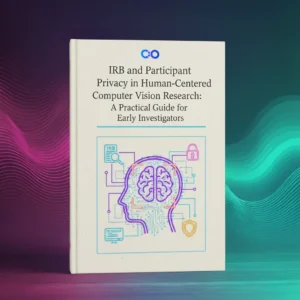

With novel technologies and smart design solutions, unmanned aerial vehicles or drones are reshaping industries worldwide. Drone use is increasing, offering immense market opportunities and enhancing medicine, agriculture, surveillance, and film. Drones also have the potential to improve research, particularly in the assessment and documentation of air pollution, glaciers, water basins, wildlife populations, and human activities (Resnik & Elliott, 2018). In fact, drone use in human subjects research (HSR) is a popular topic. Robotic aerial vehicles can improve social science studies and collect data on aspects, such as crowd sizes, public gatherings, hunting activities, and pandemics. Note that ethical principles are paramount to providing standards for the safe and effective conduct of research.
As human research may involve significant health risks and privacy violations, ethics and regulations become mandatory. When it comes to drone use in research and human subjects, however, regulatory frameworks often fall behind the rapid advancements in drone technology. Drone use also imposes privacy and confidentiality issues concerning inadvertent human subjects research and non-research activities (e.g., wildlife monitoring) (Resnik & Elliott, 2018). Perhaps the most controversial ethical dilemmas in drone research arise from the employment of autonomous drones in military settings, raising doubts about the boundaries between human beings and machines.
Human subjects research is a sensitive scientific field, which has been subjected to strict ethical and regulatory standards. Due to various unethical studies and tragic events in the past (e.g., the Nazi experiments during World War II), contemporary ethical regulations provide strict frameworks to ensure subjects’ safety and welfare. International documents, such as the Nuremberg Code, the Declaration of Helsinki, and the Belmont Report, are among the main guidelines that laid the foundations of promoting ethics in human subjects research. The Belmont Report, for instance, incorporates three basic principles to ensure subjects’ safety: respect, beneficence, and justice. In the US, current research is regulated by the Common Rule and the Food and Drug Administration, which have adopted many of the principles in the Belmont Report. Note that the main conflict in human subjects research comes down to the balance between ensuring subjects rights and advancing scientific knowledge (Resnik & Elliott, 2018).
Given the fact that conducting a study which involves human subjects is a complex task, any scientific endeavor should be approved by a committee or an institutional review board (IRB). Institutional review boards can accept, reject, or require changes to a given study, based on strict requirements about possible risks, anticipated benefits, inclusion criteria, informed consent, and proper documentation. Note that additional safeguards might be required in drone research, especially in vulnerable populations (e.g., children).
Research is defined as any systematic investigation designed to build upon the existing scientific knowledge. Human subjects research, on the other hand, refers to any research involving a living individual about whom researchers collect, use, and analyze biospecimens or private information. While some research explicitly involves human subjects (e.g., clinical trials), data-driven, social media, and drone studies also raise ethical questions about people’s safety, privacy, and confidentiality. Note that privacy is defined as a broader concept than confidentiality and refers to an individual’s right to be protected from invasion of their well-being, property, or private information. Confidentiality, on the other hand, refers to the protection of one’s private information; where private information is defined as any information collected in a context in which an individual do not expect any observations or recordings to be conducted or made public (Resnik & Elliott, 2018). Given the importance of confidentiality, privacy, and safety, ethics in drone use, and human subjects research become mandatory. However, not all drone studies involving people are classified as human subjects research.
When it comes to drone research, experts must decide whether a study qualifies for human subjects research, whether research is exempt or not, and whether consent can be waived in non-exempt human subjects research (Resnik & Elliott, 2018).
Due to the increasing complexity of technological solutions and research designs, drone use in human subjects research is increasing. While drone use imposes risks of accidents and collision, confidentiality and privacy are the main factors in drone research ethics. It’s no surprise that unmanned aerial vehicles used in surveillance have raised numerous ethical dilemmas and social debates. Interestingly, according to the current US law enforcement use of drones, drones can collect information about private property as long as the information is in plain view (Resnik & Elliott, 2018). Such legal rulings, however, may differ from human research frameworks.
Thus, research regulatory bodies must enforce strict regulations concerning privacy, reasonable expectations of privacy, as well as societal values. Note that drone research which involves the observation of public behavior can qualify as exempt only if the data collected won’t be identifiable or subjects won’t be placed at any risk of harm or loss of confidentiality (Resnik & Elliott, 2018). As drones can capture data which can harm people and lead to civil or legal liability (e.g., vandalism), researchers must provide effective methods to ensure people’s privacy. Drones, for instance, can be equipped with cameras with facial recognition software designed to redact human facial images (e.g., by masking or blurring faces). Other solutions include encrypting data, handling disclosure of sensitive information, and removing identifiers. Obtaining informed consent also requires specific considerations. Interestingly, expedited review and waiver of informed consent are also feasible in drone research as obtaining consent might be impossible (e.g., consent in mass gatherings). While waiving consent in drone research is a common practice, consulting community members is always recommended. Whether a drone study is qualified as human subjects research, exempt human subjects research or non-human subjects research, community consultation can improve trust and cooperation, especially in international research.
Drone research is a complex topic. Drones are disrupting current research, monitoring and mapping practices, especially in dam surveillance, radiofrequency assessment, and agriculture. As drones may capture sensitive information, which may lead to legal consequences and civil liability (e.g., images of remote populations and their hunting and social practices), drone use should be subjected to strict regulations. In inadvertent human subjects research (e.g., research which might capture information concerning living individuals), for instance, an institutional board should decide if the given study is non-human subjects research, exempt human subjects research or non-exempt human subjects research where consent can be waived (Resnik & Elliott, 2018).
Drone use in non-research activities also raises numerous considerations regarding people’s privacy, safety, and confidentiality. Civilian and commercial uses of drones may be beneficial in improving law enforcement or delivery, but drone use is often considered as an invasion of privacy. Note that even drone photographs might impact one’s privacy, and a large number of drones in limited airspace can be detrimental to human and environmental health. Thus, international regulations and ethical frameworks must ensure safe drone use in inadvertent human subjects research and non-research activities.
From research to photography, unmanned aerial technology is changing societies. For example, the use of drones and multi-sensor platforms is increasing in surveillance and military settings. While drones provide advanced surveillance with infrared cameras, fake cell phone towers, and heat sensors, people and regulatory bodies reveal that drones impact privacy and civil liberties. Interestingly, in 1986, the US Supreme Court concluded that the law enforcement’s use of a private aerial vehicle to capture cannabis growing in a person’s backyard was a reasonable search and did not require warrant; authorities justified their decision with the fact that the airspace above the house was public and the plants were in plain view (Resnik & Elliott, 2018). Apart from such controversies and privacy violations, we should note that drone use may lead to accidents or drone failures.
Unmanned aerial vehicles used in military settings can be detrimental to human and environmental health (e.g., collateral damages). What’s more, with the increasing advancements in drone technology and artificial intelligence, autonomous drones are already being tested. Such drones are programmed with algorithms for countless courses of action without being directed by a human operator. While such technology can benefit humanitarian missions and reduce combat causalities, the large combination of possible human-defined courses of action makes autonomous drones almost impossible to verify. In addition, drone autonomy based on artificial intelligence, or the capability to learn and self-develop different courses of action, raises ethical dilemmas about war ethics and the delegation of life-to-death decisions to machines.
Unmanned aerial vehicles or drones have the potential to revolutionize research practices worldwide. Drones can be used for dam surveillance, radiofrequency assessment, telemedicine, delivery, law enforcement, and social investigations. With novel capabilities and compact design solutions, drones can be highly beneficial in the monitoring of human gatherings, social events, and crowd sizes. Yet, drone use raises numerous ethical dilemmas. As explained above, ethics in research are mandatory to guarantee subjects’ safety and well-being, as well as scientific progress. Privacy and confidentiality, in particular, are two of the major aspects that require specific consideration in drone research. Moreover, ethics committees should decide if a drone study qualifies for human subjects research, exempt human subjects research or non-exempt human subjects research in which consent can be waived. Inadvertent human subjects studies and non-human drone activities should also be regulated to ensure minimal risks and human well-being; such studies should seek review and oversight of protocol and data collection (Resnik & Elliott, 2018). Note that one of the most controversial uses of drones is within military settings. In fact, military autonomous drones and intelligent systems used as war tools raise numerous ethical questions and moral dilemmas about the delegation of lethal decisions to machines.
To sum up, unmanned aerial vehicles are widely used across business, leisure, and research. While drones can be bought almost everywhere, experts should impose strict regulations to guarantee human and environmental health, as well as people’s privacy and confidentiality. In the end, respect, beneficence, and justice are mandatory in human subjects and drone research.
Resnik, D., & Elliott, K. (2018). Using Drones to Study Human Beings: Ethical and Regulatory Issues. Science and Engineering Ethics.
